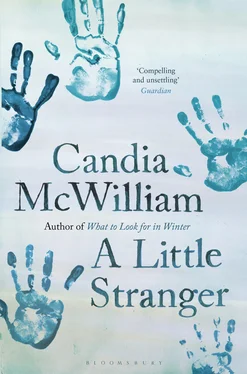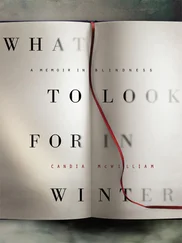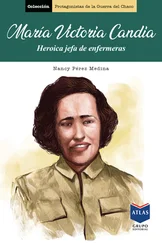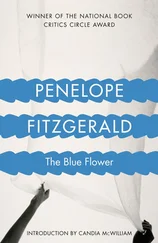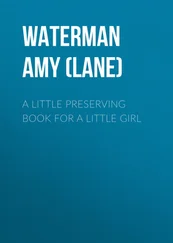Candia McWilliam - A Little Stranger
Здесь есть возможность читать онлайн «Candia McWilliam - A Little Stranger» весь текст электронной книги совершенно бесплатно (целиком полную версию без сокращений). В некоторых случаях можно слушать аудио, скачать через торрент в формате fb2 и присутствует краткое содержание. Год выпуска: 2011, Издательство: Bloomsbury UK, Жанр: Современная проза, на английском языке. Описание произведения, (предисловие) а так же отзывы посетителей доступны на портале библиотеки ЛибКат.
- Название:A Little Stranger
- Автор:
- Издательство:Bloomsbury UK
- Жанр:
- Год:2011
- ISBN:нет данных
- Рейтинг книги:3 / 5. Голосов: 1
-
Избранное:Добавить в избранное
- Отзывы:
-
Ваша оценка:
- 60
- 1
- 2
- 3
- 4
- 5
A Little Stranger: краткое содержание, описание и аннотация
Предлагаем к чтению аннотацию, описание, краткое содержание или предисловие (зависит от того, что написал сам автор книги «A Little Stranger»). Если вы не нашли необходимую информацию о книге — напишите в комментариях, мы постараемся отыскать её.
A Little Stranger — читать онлайн бесплатно полную книгу (весь текст) целиком
Ниже представлен текст книги, разбитый по страницам. Система сохранения места последней прочитанной страницы, позволяет с удобством читать онлайн бесплатно книгу «A Little Stranger», без необходимости каждый раз заново искать на чём Вы остановились. Поставьте закладку, и сможете в любой момент перейти на страницу, на которой закончили чтение.
Интервал:
Закладка:
‘Boys or girls?’ asked John, greedy but nervous.
‘Cars, maybe, even,’ said his father.
I could see John thinking. His eyes went black and he flicked the silvery barrels of his sandals’ buckles, which were between his father’s blue-clothed knees. I thought I knew what he was thinking. He had connected my size with the baby to come, but he had just worked out that there might also be within me a train set, a fire engine, a build-it-yourself airport, with planes.
He put on a foolish voice. His father could be wooed with disingenuous words. I had seen him with the shady sapphire merchant, the mandrill-faced bullion-brokers with a line on Cayman postes restantes. John could be quite as effective.
‘Is Mum having a sportscar then?’ he asked, in the horrid clever voice of a punchlining comedian entertaining the mentally unadvantaged. This was a good voice for reaching my husband, who preferred his jokes signposted. But he had lost the thread, was thinking his way into Holland Park and down to our house.
‘Mmmm?’ he asked. It was an endearing noise, lazy. He had heard, but did not want to make the effort to think up a reply.
‘No,’ came a voice from behind me. ‘No. And what’s more you know no.’
It was Margaret, come to say goodbye. She was removing her apron, a polythene-coated one, with a noise like a struggling fish. It was a large apron for a short person, but it had a lot to say. It related the calorific value of many basic foods; its one pocket, big enough to hold perhaps 50,000 calories in potato form, said:
But lovin’ good
Consumes dat food.
‘Hop in, Margaret. Ever been in one of these?’ said my husband.
She opened the back door for herself, as though that were the new part of the experience, and sat in the middle of the back, the least comfortable spot in that fast comfortable machine. Looking at her face, I understood suddenly the romance of cars. It was like watching a chicken getting into an orgone box. The car curved and returned. She emerged a phoenix.
‘You’re nice to please. Easy to please, too,’ said my husband, letting out the radiant bird.
We all three waved him off as he turned slowly along the front of the house. It was still too cold for the gravel to spit. Instead it crunched like rich cake and no dust rose to dull the low dense hedges of box that flexed like congers in the wake of the big car.
The question of John’s strange man again occurred to me, but I couldn’t see a way of bringing the subject up tactfully. Looking around, I could see nothing of which to make an apropos. Our house, the day, the flowers, it all appeared so feminine; how could I fracture it just because my son had invented a person whose only characteristic was that he was bigger than Margaret? Perhaps all children did it; something to do with challenging authority. I decided to wait until a clear opportunity arrived.
‘John, you go upstairs. Margaret wants to talk to Mummy,’ said Margaret. She often spoke of herself in the third person, as though telling a story. It was comforting; it seemed the story’s ending could only be happy, for the telling of it was so dull, a small narrative of journeys up and down stairs, of food taken in, of unrememberable acts.
He began to hurl up the back stairs, the banana-coloured crêpe of his shoes kissing the treads alternately, as he leaned his left side against the wall; he was torn between getting upstairs to play and staying downstairs with. . Margaret, or me, or perhaps just the possibility of a biscuit.
Margaret led the way to my morning-room; it was as though she felt more able to talk in there, as if people might be listening elsewhere.
‘It’s nothing serious,’ she said. Certain denials declare their opposites; this was one of them. I felt the beat of panic, but asked, ‘What isn’t serious?’
‘I went to see the doctor yesterday. He gave me a piece of news.’
‘Our doctor?’ She was registered with him, but had wished to keep her own doctor too.
‘My doctor.’ She must have seen my puzzled look. ‘I thought I’d better make it my doctor. You see, it’s something John did.’
‘John? But he’s a child.’
‘Oh, it’s nothing. But I thought I’d better tell you in case anything happened.’
So far I was not very worried. I did not think it possible that John had done anything very bad, and the mystification was beginning to irritate me.
‘What on earth is it, Margaret? I can’t bear the suspense.’
She gave me a look of dignified injury.
‘I am sorry; were you rough-housing?’ I asked.
‘No. I don’t do that. But I am afraid he has blinded me in one eye.’
‘BLINDED you, Margaret? You don’t mean blinded, he can’t have. .’ I was aware of gabbling; I only wanted it not to be true. ‘When did it happen, where, no really, I mean how bad is it?’
I looked (my own two eyes a guilty weight in their sockets) hard at her eyes. They were surrounded with a powdery colour, sort of carrageen green. The irises were a clear hazel; the pupils identical unadapting black circles. Did one, the left one, look rather puffy? I was beginning to feel very sick.
Margaret stared back at me with a kind of weird, holy stillness. I remember thinking, dazedly, that it couldn’t be a joke, because she didn’t have a sense of humour.
If someone says they are blind in one eye, one cannot very well disbelieve them. They are halfway to Gloucester; and in a great deal worse than a shower of rain. I felt bad for Margaret, and also frightened and defensive about my gentle son.
‘It happened a couple of days ago; it could have happened to anybody.’
‘But it happened to you, for God’s sake.’
She looked very put out at the personal turn the conversation was taking. If she could have indicated her indisposition, like a Chinese lady, with a chopstick pointing to the relevant part of an ivory figurine, I felt she would have.
‘Oh, I’m sure it’ll get better; the doctor almost said so.’
A fit of blindness, a passing blindness; was it possible?
‘I must ring him. I want to know exactly. Oh Margaret, how did it happen? It must be the most appalling shock.’
I felt as though we had breached some biblical law of hospitality: do not blind your house guest or your servant. I thought of the charry stick poking Polyphemus’s eye, a huge, blood-red anemone.
Although the information was desperate, Margaret’s attitude seemed so mild that I didn’t know how to behave.
‘I think I’ll just be philosophical,’ she said. ‘I’d rather you didn’t call my doctor until I’ve. .’
I interrupted her. ‘You’ll want to stop working right away, won’t you?’
‘If you don’t mind, I will not. It’s just a small thing.’
I thought wildly of what a person is condemned to without their sight, of the value of seeing, of equivalent circumstances in Ameräica, where people sue for loss of libido at the sting of an insect.
‘It’s a huge thing, Margaret.’ The poor girl was in shock, and in the habit of unselfishness. ‘You still haven’t told me when it happened.’
‘A couple of days ago. John did it with his finger.’
‘Which finger?’ I had hellish thoughts. Would the offending finger be chopped off by some retributive scissor-man?
‘Oh, I don’t know. He’s only a child. It was an accident, best forgotten. We can’t cry over spilt milk.’
I grieved for the ineptness of that, for the beauty of the earth which was — perhaps only temporarily, oh pray God — divided in two for Margaret, and one half hidden.
‘I can’t forget it.’ How could I forget that my son, no matter in how much innocence, had halved the sight of a young woman? Yet I felt guilty for the emphasis on my own pain and worry, which must be nothing to hers, and here she was behaving, as ever, so well.
Читать дальшеИнтервал:
Закладка:
Похожие книги на «A Little Stranger»
Представляем Вашему вниманию похожие книги на «A Little Stranger» списком для выбора. Мы отобрали схожую по названию и смыслу литературу в надежде предоставить читателям больше вариантов отыскать новые, интересные, ещё непрочитанные произведения.
Обсуждение, отзывы о книге «A Little Stranger» и просто собственные мнения читателей. Оставьте ваши комментарии, напишите, что Вы думаете о произведении, его смысле или главных героях. Укажите что конкретно понравилось, а что нет, и почему Вы так считаете.
